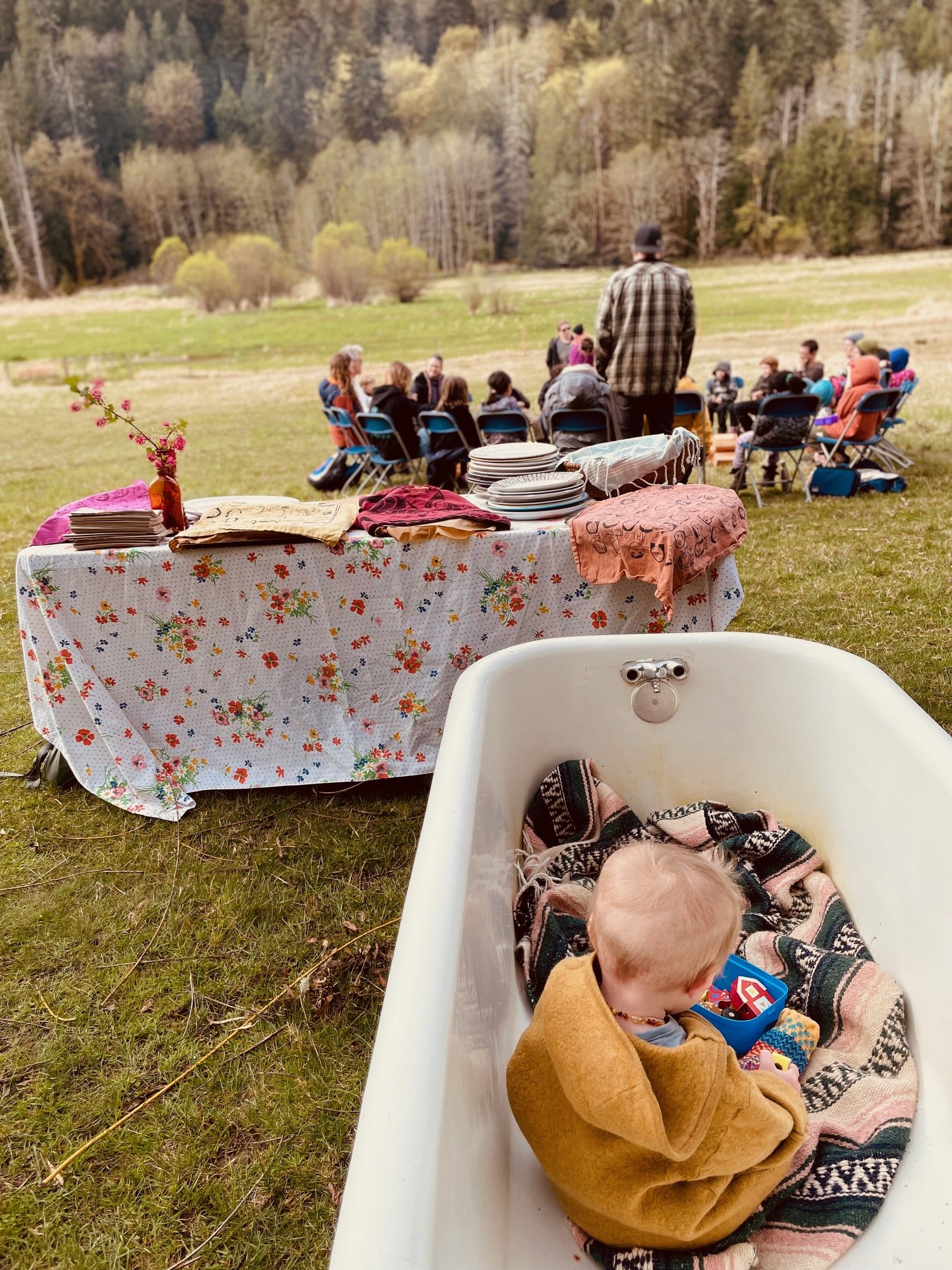
Stories of Hornby Island
Over the course of the 2024/2025 school year, the students of Hornby Island Community School's Grade 1-3 class embarked on a months-long journey of inviting inspiring Hornby locals to come and share their stories around a fire. Fueled by these experiences, the students spent many moments reflecting, creating, and writing about these stories. This journey was a community-based experience that wove together the themes of family; sense of place; importance of stories as record-keeping; and the importance of gathering and sharing a meal together. With permission, to document this program rooted in Land-based literacy and Place-based learning, the recordings from this student-led experiential work have been featured here. Stories of Hornby Island, was made possible because of the grounding support of Hornby Island's influential community. The Elders, children, parents, guardians, and guides of Hornby Island have created an interconnected community that encourages this experiential student-led work – weaving together Land-based literacy and Place-based learning.
We would like to thank the inspiring Hornby locals who shared their stories with the students of Hornby Island Community School, and we would like to deeply acknowledge the students' dedication and commitment to this program. We would like to wholeheartedly thank Casey Doss for fearlessly leading the Grade 1-3 class through this experiential program and creating the educational platform for this work to integrate, and we would like to thank the influential volunteers who generously offered their meaningful energy throughout each Fire Circle. We would like to thank the inspiring Teachers and Leaders of Hornby Island Community School and the Parent Advisory Council for their warm and unwavering support. We would additionally like to thank those who played a role in producing the Hornby Island First Edition over the last several decades and to Bob Cain who has been documenting the people of Hornby Island for over fifty years and allowed us to include memorable photographs to highlight these historical stories. Lastly, we would like to thank the May family; Diana Ellis; Goya Ngan and Jonathan Page of the Wild Island Foundation; and all who donated to support this program.
We would like to acknowledge that we are on the unceded and traditional territories of the Pentlatch, Eiksan, Sathloot, Sasitla and K’ómoks Nation. They are the traditional keepers of these lands and waters.
Story Trails Land-Based Education, Story Trails Publications, 2025

